
Feb 15, 2013 | News
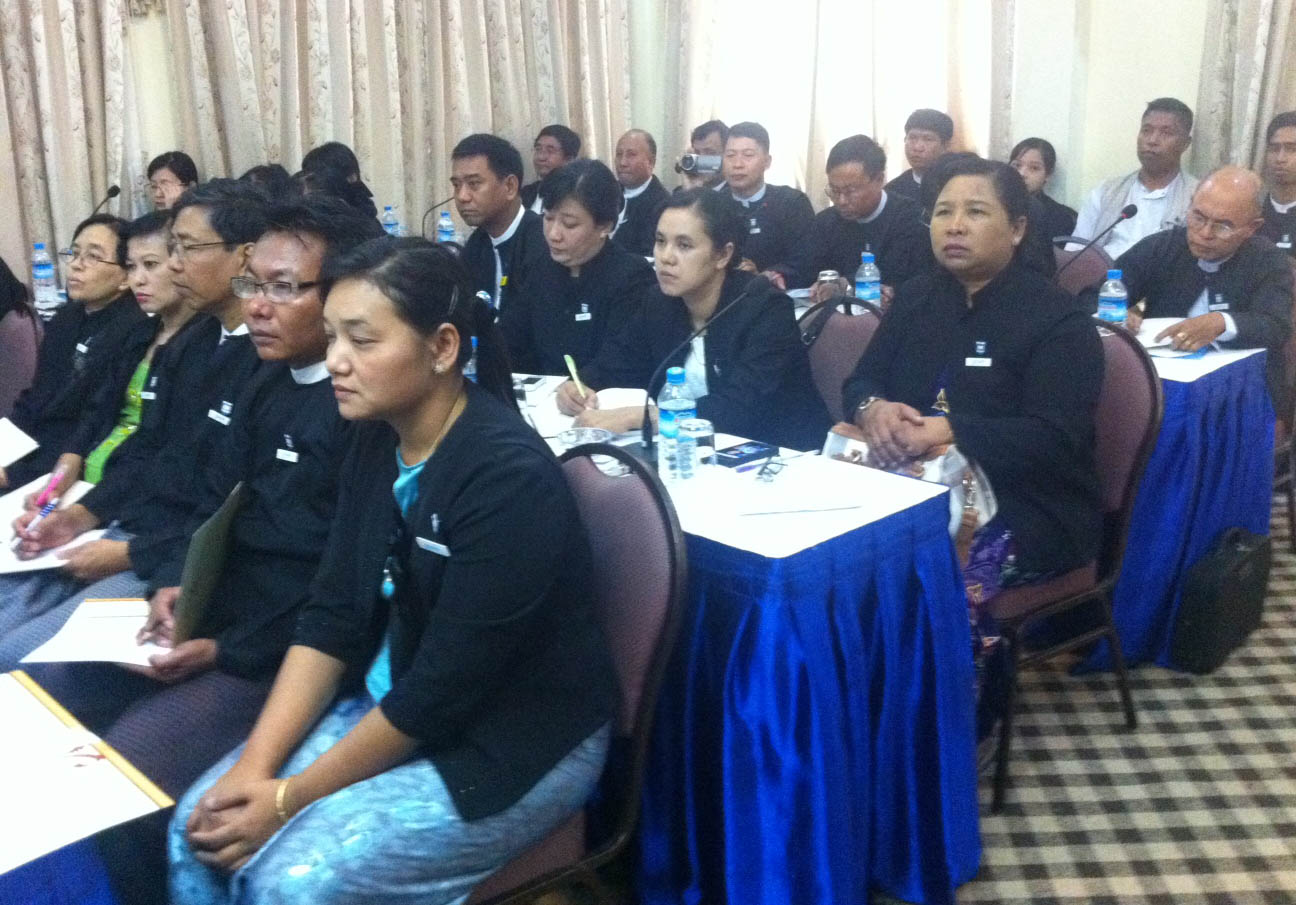 The ICJ, in collaboration with the Office of the Attorney General of the Union of Myanmar, held a two-day academic seminar in Naypyitaw entitled “The Prerogative Writs under the 2008 Constitution of Myanmar”.
The ICJ, in collaboration with the Office of the Attorney General of the Union of Myanmar, held a two-day academic seminar in Naypyitaw entitled “The Prerogative Writs under the 2008 Constitution of Myanmar”.
At the event, which took place on 14 – 15 February 2013, opening remarks were given by His Excellency Dr. Tun Shin, Attorney General of the Union of Myanmar and Mr. Saman-Zarifi, Regional Director for Asia and the Pacific of International Commission of Jurists, to a total of approximately 40 public prosecutors and judges.
The aim of the seminar was to discuss and contribute to the application of the recently re-introduced prerogative writs, namely, habeas corpus, mandamus, prohibition, quo warranto and certiorari, under Myanmar’s 2008 Constitution which came into force in early 2011.
The seminar allowed ICJ to not only gain a deeper insight into the current writ practices in Myanmar but also permitted the Office of the Attorney General to draw best practices from other countries, such as Australia, Philippines and Malaysia.
The topics addressed during the seminar were the importance of prerogative writs in ensuring justice and upholding the rule of law; specific international standards on the independence of prosecutors and their role in the justice system; how writ cases are handled, challenges faced by the prosecutors and the burden of proof; and the powers of the judiciary to promulgate its own rules to ensure fundamental rights, as in the case of the Supreme Court in Philippines.
Panelists included Justice John Dowd AO QC, former Chairman of the International Commission of Jurists; Justice Adolfo Azcuna, Chancellor of the Philippine Judicial Academy and former Justice of the Supreme Court of the Philippines; and Mr. Andrew Khoo of the Malaysian Bar Council.

Feb 15, 2013 | News
The ICJ today expressed its great concern at reports that the police in Zimbabwe have carried out what appears to be an unjustifiable raid against human rights defenders, Zimbabwe Peace Project (ZPP).
On 11 February 2013, police reportedly raided the offices of ZPP, a non-profit organization comprising of non-governmental organizations (NGO) and church-based organizations, and confiscated mobile phones, wind up radios, files with donor information, political violence reports and DVDs.
“The continuous attacks against NGOs by law enforcement agencies clearly shows that there are systematic assaults on human rights defenders which are closing the democratic space within which human rights defenders operate”, said Martin Masiga, Deputy Director of the ICJ Africa Regional Program. “It appears that the police are trying to discourage human rights defenders from engage with citizens of Zimbabwe to exchange information concerning their rights and freedoms, as the country heads for a referendum and election during the course of the current year”.
The police undertook the raid pursuant to a search warrant issued by the Superintendent of the C.I.D Law and Order Division of the Zimbabwe Republic Police (ZRP).
The search warranted stated that there were reasonable grounds to believe that ZPP had committed offences in terms of the Criminal Law (Codification and Reform) Act, the Immigration Act, and the Customs and Excise Act.
On the same evening eight police officers were discovered by the security team that provides rapid response for the ZPP at the ZPP premises, after an alarm had been tripped.
The police officers demanded to gain access into the office of ZPP Director, Jestina Mukoko. However the office was locked and they could not enter. These officers did not have a search warrant.
The ICJ welcomes the statement of the Co-Minister of Home Affairs, the honourable Theresa Makone, which says that the Cabinet is concerned “over the overzealousness of some police officers”, and that the police “must follow the basic principle of policing” which is to investigate “to arrest rather than arresting to investigate”.
The ICJ urges the Zimbabwean government to ensure that it protects human rights defenders in accordance to United Nations Human Rights Defenders Declaration, endorsed by all the States including Zimbabwe.
The ICJ further urges the Zimbabwean government to stand by its commitments to the Zimbabwean Constitution, the African Charter on Human and Peoples’ Rights and the International Covenant on Civil and Political Rights, to which it is a state party. These instruments expressly guarantee the right to the freedom of opinion, expression and association.
Lastly, the ICJ further urges the police in Zimbabwe to conduct impartial investigations into allegations of violations of human rights, to hold accountable those responsible for human rights abuse and to protect human rights defenders and NGOs that work for the protection of human rights in Zimbabwe.
Contact:
Martin Okumu-Masiga, Deputy Director of the ICJ Africa Regional Programme, t: +27110248268; e-mail: martin.okumu-masiga@icj.org
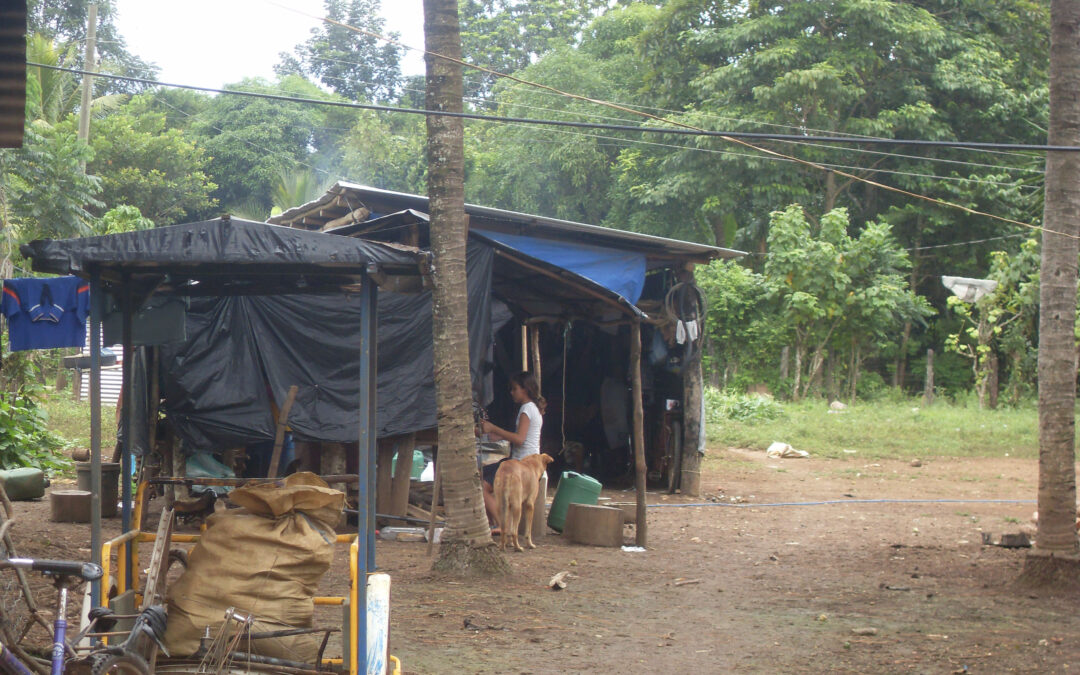
Feb 5, 2013 | News
The 10th ratification of the Optional Protocol to the International Covenant to Economic, Social and Cultural Rights (OP-ICESCR) is an historical boost for the international protection of these rights, the ICJ said today.
“With the deposit today at the UN of the 10th instrument of ratification by Uruguay, we are very close to the long awaited entry into force of this new treaty”, said Sandra Ratjen, ICJ Senior Legal Adviser on Economic, Social and Cultural Rights (ESCR).
The OP-ICESCR will enter into force in three months from today and will provide for remedies at the international level to victims of violations of economic, social and cultural rights.
The Protocol establishes mechanisms that enable the UN Committee on Economic, Social and Cultural Rights to examine complaints and initiate inquiries in cases of violations of these rights in the State parties whenever the victims could not obtain justice at the national level.
“We warmly welcome the 10th ratification of the Optional Protocol and we congratulate Uruguay on this decisive step for the protection of economic, social and cultural rights nationally and internationally”, said Wilder Tayler, ICJ’s Secretary General. “This is an important moment for the ICJ. We have a long-standing commitment and work in favour of the recognition of ESCR as legal and justiciable rights, on the same footing as other human rights.”
The ICJ urges States parties to the ICESCR to join the first ten States who became party to the Optional Protocol – Ecuador, Mongolia, Spain, El Salvador, Argentina, Bolivia, Bosnia and Herzegovina, Slovakia, Portugal and Uruguay.
The ICJ stresses that only when a significant number of States will have become party to the Protocol, the mechanisms it offers will be effectively accessible to a great number of victims of violations of ESCR.
Contact:
Sandra Ratjen, ICJ Senior Legal Adviser on Economic, Social and Cultural Rights, t: +41 22 979 38 35 ; e-mail: sandra.ratjen(at)icj.org
NOTE:
The ICJ is a member of the International NGO Coalition for the OP to the ICESCR. Together with the other members of the Coalition, the ICJ is involved in the Campaign in favour of the ratification of the OP-ICESCR.
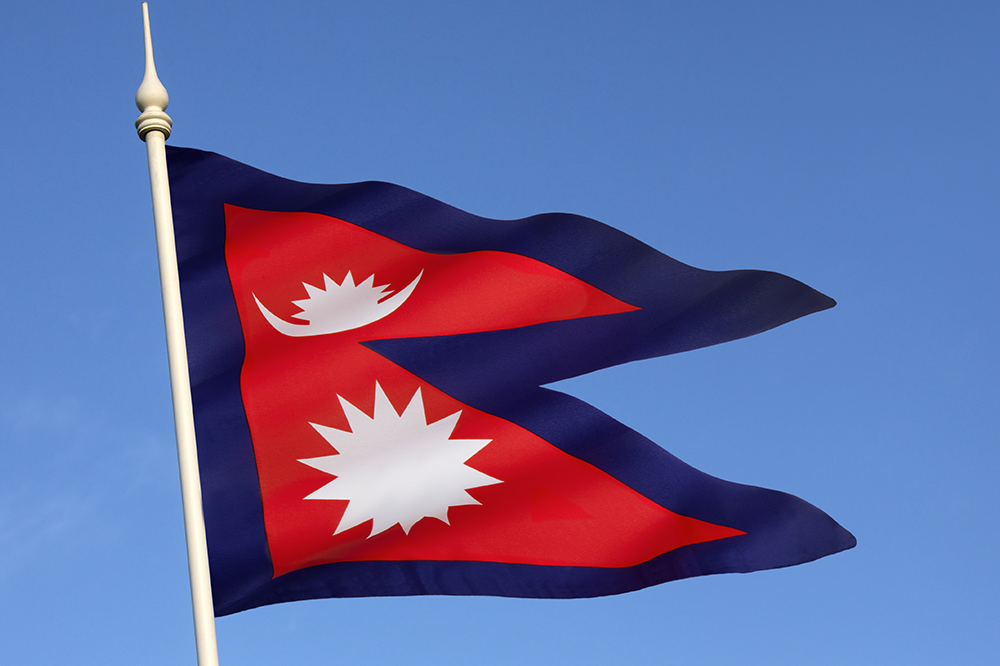
Jan 30, 2013 | News
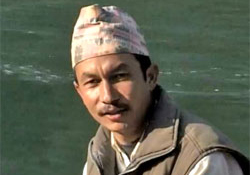 The Nepali government must ensure that the case of the 2004 killing of journalist Dekendra Thapa (photo) can proceed without further political interference, the ICJ said today.
The Nepali government must ensure that the case of the 2004 killing of journalist Dekendra Thapa (photo) can proceed without further political interference, the ICJ said today.
“Political interference into an ongoing criminal investigation constitutes a fundamental attack on the rule of law in Nepal,” said Frederick Rawski, ICJ Nepal Country Representative. “The Government must ensure that there are no further attempts to subvert the course of justice.”
On 11 January, Nepal’s Attorney General, Mukti Pradhan, sent a written instruction to the local police and prosecutor not to move forward with the investigation and prosecution.
In response to a petition challenging the instruction, on 16 January, the Supreme Court ordered both Prime Minister Baburam Bhattarai and the Attorney General not to intervene in the ongoing investigation.
The Home Ministry subsequently ordered the transfer of officials involved in the investigation, and the Prime Minister himself has made public statements calling for the suspects to be released pending the much-delayed formation of a promised truth commission.
“It is now the obligation of the justice system to ensure due process and the right to a fair trial,” Rawski added. “This is an opportunity for Nepal to illustrate the political will exists to address past human rights violations, and that the country’s judiciary can provide justice for the victims while protecting the rights of the defendants.”
Dekendra Thapa was allegedly tortured and buried alive by Maoist cadres in 2004 during the country’s decade-long civil war, which ended in 2006.
The case was finally submitted to a District Court yesterday (January 28, 2013) by the District Attorney of Dailekh in Mid-Western Nepal. The Dailekh District Attorney has charged nine people alleged to be involved.
Five of the suspects have been arrested and produced before the district court.
“Dekendra Thapa was one of the thousands of civilians whose deaths have gone without proper explanation or justice,” said Rawski. “Thanks to the courageous decision of the local authorities to proceed with this case, there is now an opportunity for the Nepali justice system to begin answering the demands for justice.”
Contact:
In Kathmandu, Frederick Rawski, ICJ Nepal Country Representative : t +977-984-959-7681
In Bangkok, Sam Zarifi, ICJ’s Asia Director: t +66-807-819-002
Photo credit: Dhurba Basnet
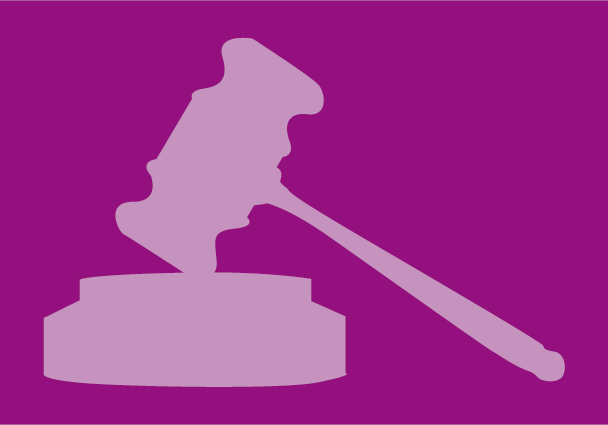
Jan 22, 2013 | CIJL Newsletter, News
This newsletter informs you on recent activities and ongoing situations related to the ICJ’s work on the independence of the legal profession.
EDITORIAL
Annually the ICJ’s Centre for the Independence of Judges and Lawyers organizes the Geneva Forum for Judges and Lawyers, aiming to stimulate reflection among the international legal community on judicial independence issues and on the role of the legal profession in the protection of human rights. The 2012 Geneva Forum for Judges and Lawyers (last December) centred on the role of the domestic court in improving access to justice for victims of human rights violations. The participants reflected inter alia on ways to support and reinforce the use of international human rights norms in the domestic court.
A wide range of legal, political, socio-economic and cultural factors that influence the domestic court’s application of international human rights law were discussed. Legal knowledge and integrity emerged as crucial to the use of international human rights norms by the domestic judge. That is, it is essential to domestic proceedings judges and lawyers know well the substance of international human rights law and that they are aware of techniques to overcome real or ‘invented’ obstacles in its application, on the one hand, and that judges are willing to hear arguments based on international human rights law and comprise them in their reasoning, on the other.
Forum participants outlined three avenues to build legal capacity and stimulate judges to exercise the choice based on integrity. Firstly, both judges and lawyers require education on human rights law; moreover, this training should not be limited to one specific course on international human rights law, but be integrated into criminal law and other courses too. Next, participants adhered much value to the “inter-judicial dialogue”, which allows judges to exchange views and get acquainted with foreign decisions they can use to support their own reasoning. Lastly, this dialogue can be turned into pressure, as judges generally wish to be respected by their peers and accordingly will be more reluctant to exercise the choice that lacks integrity, if they are aware their colleagues are watching.
The ICJ is well placed to put this assessment into action and to contribute to improving access to justice to victims of human rights violations. Active in all regions of the world and building on sixty years of experience, we make use of three concrete tools in this respect: the organization of trainings that build capacity, of forums and workshops that bring together judges and legal professionals and stimulate dialogue, and of trial observations that put specific proceedings in the spotlight.
This newsletter too aims at stimulating discussion and exchange of information. Your feedback on the content of the newsletter is welcome.
OBITUARY
Arthur Chaskalson mourned
The ICJ mourns the death of its former President, Arthur Chaskalson, at the age of 81 on 1 December 2012. Chaskalson, a renowned human rights lawyer and tenacious opponent of the Aparheid regime, was part of Nelson Mandela’s defence team in the 1963 Rivonia Trial. He then helped establish the Legal Resources Centre, a non-profit organization seeking to use the law to pursue justice and human rights, leading the organization from 1978 to 1993. From 1994 to 2001, Justice Chaskalson presided over South Africa’s new Constitutional Court, serving as Chief Justice from 2001 until his retirement in 2005. Chaskalson was elected as ICJ Commissioner in 1995 and served as the organization’s President from 2002 to 2008. From 2005 to 2008, he chaired the Eminent Jurists Panel, which investigated the impact of counter-terrorism laws and practice on human rights globally. The Panel’s report, to which Justice Chaskalson was a major contributor, has proven to be an important reference during the post-9/11 era.
IN ACTION
High-level mission and National Consultation Conference, South Sudan
3 – 6 September: The ICJ undertook a high-level mission in South Sudan in order to analyze the situation and assess avenues for progress, particularly with respect to the state of the independence of the judiciary and legal profession in the country. The delegation met with a broad group of stakeholders in Juba, collecting information and soliciting views from the judiciary, prosecutorial services and legal profession, as well as from high-ranking members of the executive, legislature and civil society. A report is forthcoming. The mission was followed by a national consultation conference, organized in partnership with the South Sudan Law Society. The conference brought together key South Sudanese actors in the administration of justice for a discussion on judicial and legal professional independence and accountability.
Evaluation visit, Guatemala
3 – 6 September: The ICJ undertook a mission to Guatemala, meeting with judges, prosecutors, lawyers and members of civil society to collect information on the smear strategy employed against judges and prosecutors fighting impunity, and on judicial action undertaken to investigate and punish those responsible for crimes committed during the internal armed conflict.
Conference on the independence of the judiciary, Egypt
9 – 10 September: The ICJ, Hisham Mubarak Law Centre and the Egyptian Organization for Human Rights organized a conference, attended by national and international experts, on the independence of the judiciary in Egypt in light of the constitutional reform process and international standards.
Participation in “Open Dialogue with Civil Society”, Tunisia
14 – 15 September: The ICJ participated in the Tunisian “Open Dialogue with Civil Society,” organized by the National Constituent Assembly, taking advantage of the opportunity to present key recommendations to ensure constitutional and other legal guarantees for an independent, impartial and accountable judiciary. The ICJ also submitted its legal memorandum, The Reform of the Judiciary in Tunisia, to the National Constituent Assembly.
Workshop on the right to fair trial, South Sudan
22 – 24 October: The ICJ, in collaboration with the South Sudan Law Society, held a workshop in Juba on access to justice and the right to fair trial. A delegation consisting of experts and ICJ staff led the training and debate sessions, which were aimed at judges, prosecutors, lawyers and legal staff in the Ministry of Justice working in Juba and in the different South Sudanese States.
Report: ‘The Crisis of Impunity’, Sri Lanka
1 November: The ICJ released a comprehensive report entitled, Authority without Accountability: The Crisis of Impunity in Sri Lanka, which documents how and why it has become nearly impossible for people who have suffered serious human rights violations to receive justice. The ICJ urged the Sri Lankan government to immediately cease its assault on the independence of the judiciary and respect its international obligations to investigate human rights violations by bringing the perpetrators to justice through prosecution and providing victims with effective remedies and adequate reparations.
Seminar for lawyers from Central Asia, Switzerland
5 – 9 November: The ICJ organized a five-day seminar in Geneva for lawyers from Central Asian countries on the role of international human rights law in the criminal justice process. The seminar covered to the rights to fair trial, life, liberty, and freedom from torture and cruel, inhuman and degrading treatment. It provided a forum for detailed and practical discussion of international human rights law and its application to national systems.
Report: ‘Securing Justice’, Russian Federation
4 December: Following a mission to the Russian Federation in April 2012, the ICJ released a report entitled, Securing Justice: the Disciplinary System for Judges in the Russian Federation, which focuses on disciplinary action against judges, particularly dismissals, and considers how this affects the independence of judges. The report notes an inability to ensure fair judicial procedure and stresses that a deeper culture of respect for the judiciary and its independence, as well as a sense of autonomy and empowerment within the judiciary itself, is necessary to prevent further abuses. The report makes recommendations that include legal and procedural reforms.
Third ICJ Geneva Forum for Judges and Lawyers, Switzerland
13 December: The third ICJ Geneva Forum for Judges and Lawyers explored the role of the domestic court in improving access to justice. In three brainstorming sessions, the participants focused on the impact of national legal, political and cultural particularities on the operations of domestic courts; on the role of the lawyer in strengthening the protection of international human rights norms through domestic litigation; and on the way judges assess the national integration of international human rights norms. A report is forthcoming.
MONITORING ALERTS
The case of Shirani Bandaranayake, Sri Lanka
The ICJ condemned the decision of Sri Lanka’s parliament to impeach the country’s Chief Justice, Shirani Bandaranayake. The impeachment defied the rulings of the country’s Supreme Court and Court of Appeal and followed a procedure widely criticized for ignoring international standards and practice. The impeachment comes against the backdrop of increased tensions between the judiciary and the government.
Attacks against judicial independence, Central America
Concerned by developments in 2012 in Honduras, El Salvador and Guatemala, the ICJ urged the pertinent governments to abstain from interfering with judicial independence and to take necessary measures to guarantee judicial independence, by establishing protection mechanisms for judges, prosecutors and other legal professionals and by creating or reinforcing judicial careers, in line with their international obligations. The strengthening of the judicial sector must ensure the effective protection of human rights, including the fight against impunity.
Suspension of the SADC Tribunal, Southern Africa
The Pan African Lawyers Union and the Southern African Litigation Centre, with the support of inter alia the ICJ, has lodged a request for an advisory opinion with the African Court on Human and People’s Rights, seeking a pronouncement on the legality of the suspension of the Southern African Development Community Tribunal by the region’s leaders.
The case of Judge Zhumasheva, Kazakhstan
The ICJ has expressed its concern over disciplinary sanctions and threats of criminal prosecution against Judge Aliya Zhumasheva, following her refusal to abide by improper demands of senior colleagues and the Prosecutor’s Office to issue convictions in two criminal cases. The ICJ called on the Kazakh authorities to initiate a prompt, thorough and independent investigation into this alleged interference with the administration of justice.
Attack on Manjula Tillekaratne, Sri Lanka
The ICJ urged the Sri Lankan government to immediately provide justice for the physical assault of Manjula Tillekaratne, the Secretary of the Judicial Service Commission, who was assaulted by unidentified persons on 7 October. Furthermore, the ICJ called on the Sri Lankan authorities to cease public efforts to undermine the independence of the country’s judiciary.
Violation of the independence of the Bar Association and persecution of Bâtonnier Mbuyi Mbiye Tanayi, DR Congo
The ICJ expressed its grave concern over reports that the National Director of Public Prosecutions in DRC instructed senior members of the Bar Association to dismiss Bâtonnier Mbuyi Mbiye Tanayi, who is a known and vocal advocate of judicial independence. The ICJ urged the National Director to desist from interfering in the affairs of the Bar Association and to put an end to persecutions against Bâtonnier Mbuyi Mbiye.
Activists convicted without fair trial, Bahrain
The ICJ called upon the Bahraini authorities to immediately and unconditionally release 13 human rights defenders and political activists convicted by the Criminal Court of Appeal in Bahrain; the ruling upheld convictions and sentences handed down last year by the National Safety Court and the National Safety Court of Appeal. The ICJ deems the retrial before the civilian court a failure, in that it did not remedy the inadequacies of the initial trials before military courts, which did not meet international standards of fair trial.
CONTACTS AT CIJL:
Ilaria Vena, ICJ Associate Legal Adviser, t +41 22 979 3827, ilaria.vena@icj.org
Laurens Hueting, ICJ Associate Legal Adviser, t +41 22 979 3848, laurens.hueting@icj.org

 The ICJ, in collaboration with the Office of the Attorney General of the Union of Myanmar, held a two-day academic seminar in Naypyitaw entitled “The Prerogative Writs under the 2008 Constitution of Myanmar”.
The ICJ, in collaboration with the Office of the Attorney General of the Union of Myanmar, held a two-day academic seminar in Naypyitaw entitled “The Prerogative Writs under the 2008 Constitution of Myanmar”.









